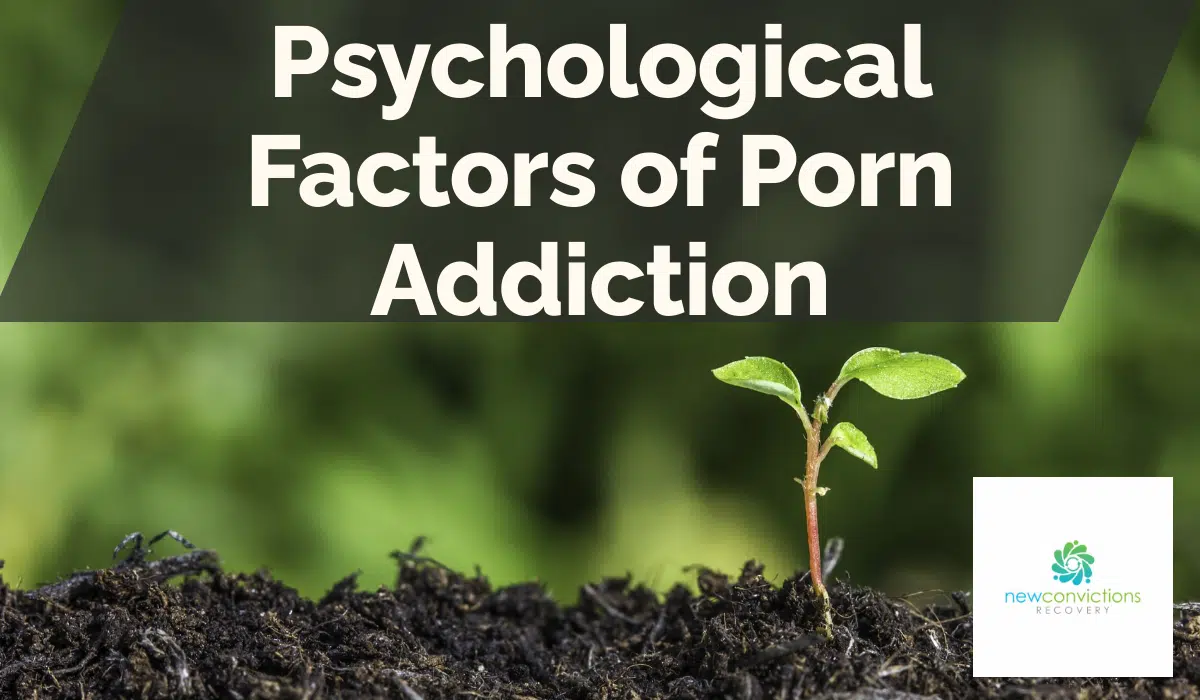Understanding the psychological factors behind pornography addiction requires a thorough study of not just the addiction itself, but also the behavioral tendencies and mental state of an individual. Simply put, pornography addiction is a compulsive behavior that can interfere with a person’s daily life, similar to substance addiction. It is crucial to note that this addiction is not about morality or self-control, but is rooted in complex psychological causes and associated behavioral health issues.
Psychological Causes Underlying Pornography Addiction
The psychological causes of porn addiction are as diverse as they are complex. They can involve current mental health issues, past traumas, and latent personality factors. Here’s a closer look at some of these elements.
Mental Health Problems
Pornography addiction often coexists with mental health issues such as anxiety, depression, or obsessive-compulsive disorder (OCD). These disorders can make individuals more vulnerable to addictive behaviors. In some cases, the addiction may serve as a coping mechanism for these conditions.
Past Traumas
Those who have experienced trauma such as sexual abuse or a neglectful upbringing may develop unhealthy coping mechanisms, including addiction to pornography. This doesn’t mean that everyone who struggles with pornography addiction has a trauma history, but such experiences can significantly increase the risk.
Personality Factors
Some personality traits, such as impulsivity or high novelty-seeking behavior, have been linked to pornography addiction. Additionally, people with lower self-esteem or have difficulty forming intimate relationships may turn to pornography as a way to cope or fill a void.
Link Between Behavioral Health and Porn Addiction
Behavioral health refers to the connection between behaviors and an individual’s health, both physical and mental. Understanding this link is pivotal in understanding porn addiction.
Negative Behavioral Cycle
An individual with porn addiction usually falls into a negative behavioral cycle. The pattern starts with consuming pornography to escape or handle stressors. This initially brings temporary relief, but as the behavior continues, feelings of guilt and shame often follow, which then exacerbate the stress, leading back to pornography for relief. Breaking this cycle can be challenging but essential for recovery.
Addiction Factors behind Pornography Addiction
Last but not least, addiction factors are foundational to understanding this issue. The brain processes pornography in ways similar to how it does substance abuse.
The Role of Dopamine
Dopamine, often called the ‘reward molecule’, plays a significant role in creating addiction. The rush of dopamine we experience while viewing pornography conditions us to want more of it, eventually leading some people down the path to addiction.
FAQs
Q. What psychological factors contribute to pornography addiction?
A. Mental health issues, past traumas, personality factors, and various addiction factors contribute to porn addiction.
Q. What is the negative behavioral cycle in pornography addiction?
A. The negative cycle involves viewing porn as an escape from stress, experiencing temporary relief, then dealing with guilt and shame, which leads back to consuming more pornography.
Conclusion
In conclusion, the psychology behind an addiction as complex as pornography addiction is a multifaceted issue. It involves mental health problems, historical traumas, and personality factors interwoven with a profound understanding of behavioral health and addiction factors. An effective treatment plan should encompass these aspects, clarifying that individual counseling and family therapy can help individuals walk the path towards recovery.

